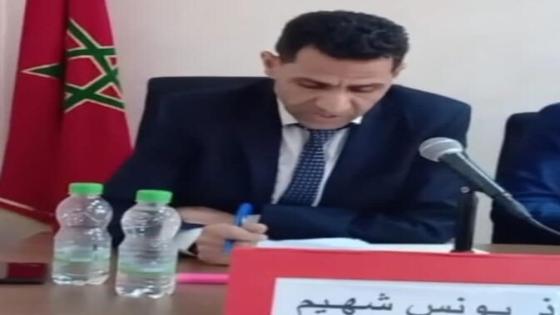The Moroccan citizen often stands in shock and is unable to explain the unilateral and improvised decisions taken by some of those entrusted with the responsibility of managing public affairs, or the suggestions they present that are sometimes almost useless, when the country faces a crisis, whether it is social, economic, health, etc. This confirms that we are still far from determining the objective criteria that would facilitate the task of selecting the appropriate person who meets the necessary conditions in terms of competence and reliability.Truth and integrity to put him in the right place, so that he can contribute effectively to proposing appropriate solutions to various problems and crises.
After the educational crisis that paralyzed public education institutions for more than six consecutive weeks, due to reckless and unfair decisions, our country is going through another stifling and more dangerous crisis, as a result of the drought and lack of rainfall in recent years, and the resulting… A decline in the filling rates of dams and water facilities in the Kingdom’s various basins. The Minister of Equipment and Water and Secretary-General of the Mizan Party, Nizar Baraka, revealed before the House of Representatives in the last week of the past year 2023 worrying numbers and statistics, as the current percentage of filling dams does not exceed 24 percent in the various basins, which is equivalent to 3 billion and 750 million cubic meters. Note that it was more than 31 percent during the same period last year, stressing that our country has never experienced such a severe drought that extends for five consecutive years, and that the previous three months showed that the country is heading towards another dry year.
This is what made the same government official also declare the possibility of interrupting services to supply the population with drinking water and reducing water flow in light of the ongoing drought that the Kingdom is experiencing, which has led to continuous water stress and a significant decline in water imports in a number of Moroccan cities, and requires accelerating the adoption of measures. New measures to reduce the water scarcity crisis, as it will be necessary to entrust the regional committees headed by governors and workers with the responsibility of tracking the water situation on a daily basis.
In the face of this disturbing situation, the government refused to devote itself to preparing and implementing a program of proactive measures, concerned with supporting groundwater mobilization, linking water systems, integrated management of water resources, and reducing the level of water waste, in order to overcome the situation of water stress and guarantee drinking water for citizens, as it worked to sign A set of agreements between the various stakeholders pertaining to water basins in all regions, and also pertaining to urgent support to provide the rural community with a sufficient share of potable water, in addition to several other measures, such as starting to desalinate seawater and reusing treated wastewater…
and in the same context. In order to rationalize the consumption of potable water, Abdel Wafi Laftit, Minister of the Interior, sent an official letter to the governors and workers of the Kingdom’s regions, calling on them to “prevent watering all green areas and public parks, or using water to clean roads and public squares.” Ensuring to reduce the use of water in public and private swimming pools and not to replace their water more than once a year, stressing avoiding the use of water in depleting crops except in coordination with the Ministry of Agriculture and Fisheries, and holding meetings with water distribution contractors in the first week of each month in order to develop Maps of water consumption by province, updated regularly to highlight the areas that consume the most water, based on average daily liters of water consumed per capita, without neglecting to mention awareness-raising measures, based on direct communications, distribution of brochures, leaflets, etc.
So far, such measures can only be appreciated, even if they came somewhat late, with the aim of confronting the repercussions of this serious water crisis, but what caught the attention of many is that the governors and workers took a decision to close public bathrooms during the first three days of each week (Monday, Tuesday and Wednesday). ) among other strict decisions, in an effort to rationalize water consumption and reduce its waste. Which led many Indians to question the measures planned to be taken by the government to protect them and mitigate the economic impacts, considering the decision unfair and hasty, especially since the authorities did not take their opinion and consult them until satisfactory solutions were reached, taking into account the interests of workers in the sector according to objective data and studies, lest… Closing public bathrooms will have a negative impact on society and the national economy.
When the authorities decided to close traditional baths for three consecutive days a week, instead of adopting other measures such as reducing daily working hours and intensifying awareness-raising campaigns, they did not take into account that the “baths” sector falls within the framework of the socio-social economy, and that Its decision has negative repercussions on thousands of users, in terms of depriving them of a daily income, which will inevitably affect their purchasing power, in addition to making citizens forced to shower in their homes, which may double the volume of water and gas consumption, and it is better for us in the “Covid-19 pandemic” crisis. for example.
Ismail Al-Halouti
crackdetudo.com
ليس بإغلاق الحمامات نواجه أزمة الماء!






